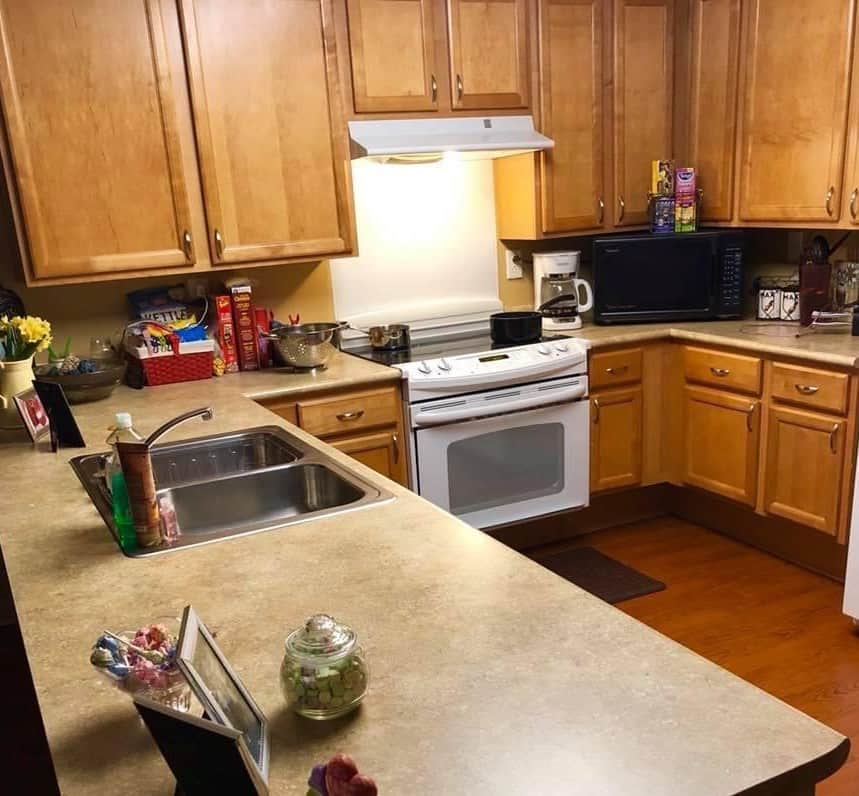

Although we might not see it, domestic violence is a major issue all over the country. For the men and women who suffer at the hands of their partner, the trauma they experience can impact them for the rest of their lives. Even after they flee their abusers, many survivors fall into a cycle of poverty and homelessness. One local nonprofit, HEARTH (Homelessness Ends with Advocacy, Training, and Housing), specializes in serving women who have survived domestic violence by empowering them to become independent and self-sufficient so they can thrive on their own.
The problems of domestic abuse don’t end with the abuser. Survivors are faced with countless questions once they flee: Where will my next meal come from? Where will I sleep? Where can I change my clothes? How will I provide for my children?
To give their clients a reprieve, HEARTH ensures all of their basic needs are met by providing food, clothing, and shelter.
“When those needs are met,” says Communications Manager Tara Maziarz-Myers, “Mom can move on to the next thought. She can focus on her plans for school, pursue therapy, and do anything else she needs to get ahead in life.”
Although HEARTH is generous with its resources, it still has high expectations for its clients.
“They have to become self-starters,” says Maziarz-Myers. “If they can learn to do everything themselves at HEARTH, they can learn how to do those same things on their own. When they have the right knowledge and skills, they can break the cycle of homelessness that is frequently the result of domestic violence.”
HEARTH’s mission is to develop the entire individual—mother and children included. In doing so, HEARTH builds every client a metaphorical toolbelt.
“While the mothers and children are here, we work on developing their toolbelt,” says former HEARTH CEO Judy Eakin. “Everything we learn, all the skills we develop, it all goes into our toolbelt. Whether it’s learning how to work with other students, communicating with co-workers, or having a consistent bedtime, everything we do revolves around developing that toolbelt for success.”
When you develop the entire person and get them into a routine of positive habits, Eakin says, you prepare them for success on an individual and professional level.

While personal development is important, HEARTH also emphasizes education. Every client must either find a job or go back to school. With better education, they have more opportunities at fulfilling careers that can support them and their children after they move out of HEARTH.
Education doesn’t stop with the classroom, however. HEARTH also teaches families about the public resources available to them. Clients learn about local food pantries, family-focused nonprofits, and places to find essentials like clothing. If they ever experience hardship after leaving HEARTH, they know which resources to use.
“When they know what’s available, they can avoid becoming homeless once again,” says Eakin. “If they need to, they can source food and clothing and other essentials for free, and that could be enough to help them pay for their rent in financially difficult months.”
These and other one-on-one classes have been instrumental in transforming lives at HEARTH. Regular life skills training and case manager assistance ensure clients develop the skills necessary for their independence. For their children, tutors are available for math, ESL, and other areas they require support to excel in school.
To provide even more opportunities at personal growth, HEARTH has forged multiple partnerships to assist clients and their children. Early Head Start, a program delivering comprehensive child development support for children three and under, has a facility right in the HEARTH building so that mothers can drop off their toddlers down the hall before they head to class or work.
“As the children grow older or after the family moves out, Early Head Start will then help them get into a Head Start program for older children,” says Eakin. “So, even if they leave HEARTH, they don’t need to miss out on one of their key support systems.”
Another partner, Domestic Counseling North, provides visitors at HEARTH with a dedicated therapist to help the women and their children through their trauma. When they leave HEARTH, they can continue working with the same therapist so that their counseling isn’t interrupted.

With the combination of personal development, education, and access to key resources, HEARTH clients are equipped for success. The average HEARTH client spends about 16 months in their facilities. Upon leaving, many clients move into their own home or apartment that they can afford thanks to their new career path.
HEARTH is making a difference in the lives of women and children in our Pittsburgh region. By offering the most vulnerable populations the resources they need for stability, families are lifted out of poverty and placed on a new path, one where they can thrive. If you’re interested in learning more about HEARTH, visit their website or take a look at their volunteer opportunities.
At Dugan & Associates, we’re inspired by the contributions HEARTH has made to our community. If you’d like to learn more about our community engagement or our legal work, contact us.
"*" indicates required fields